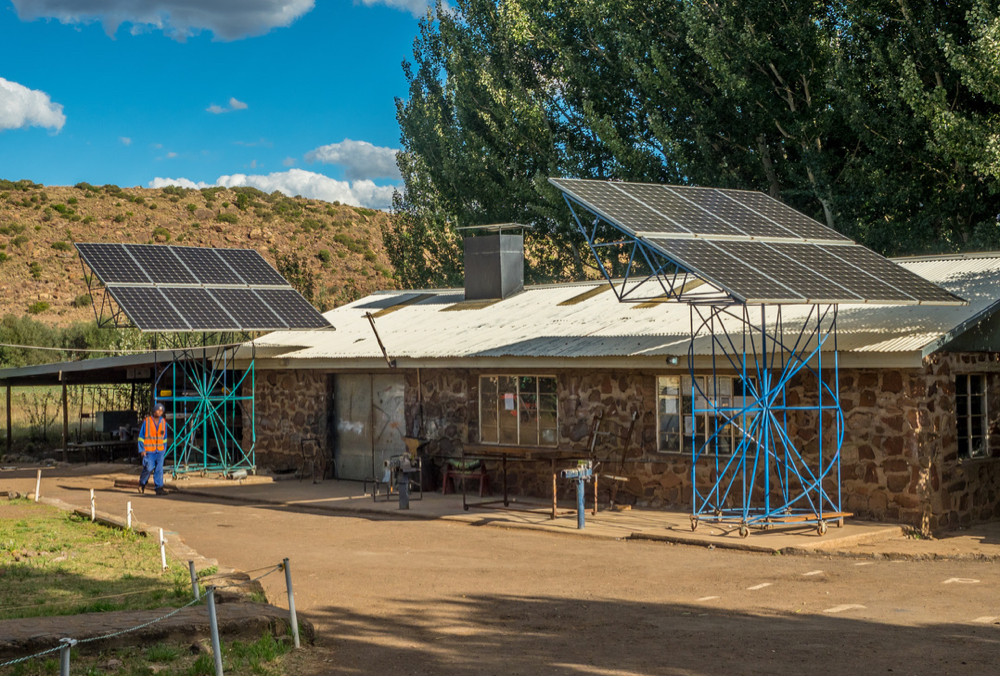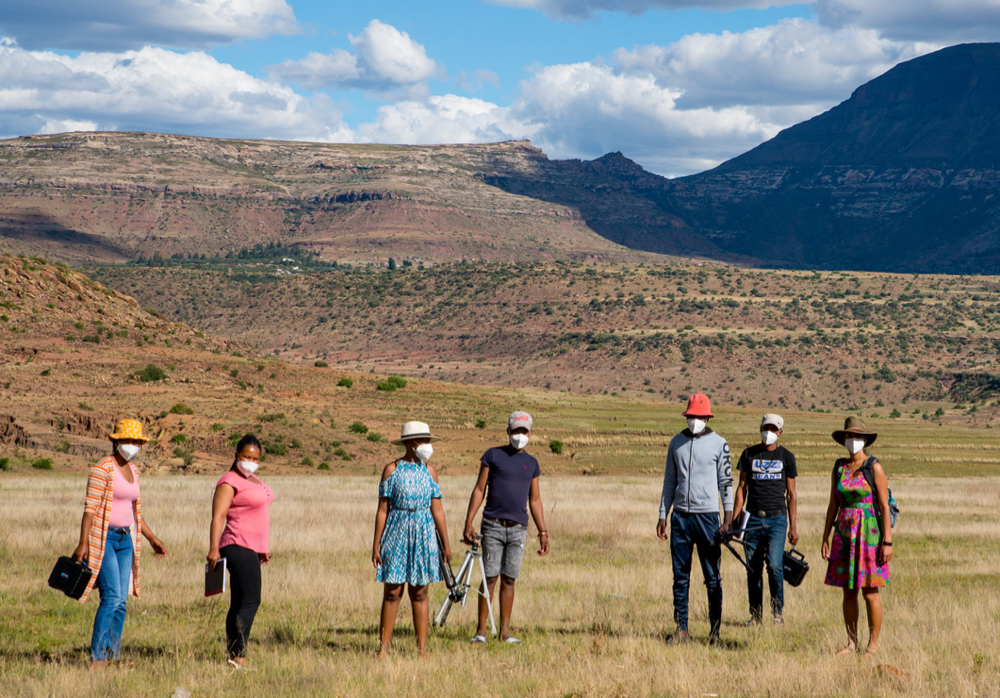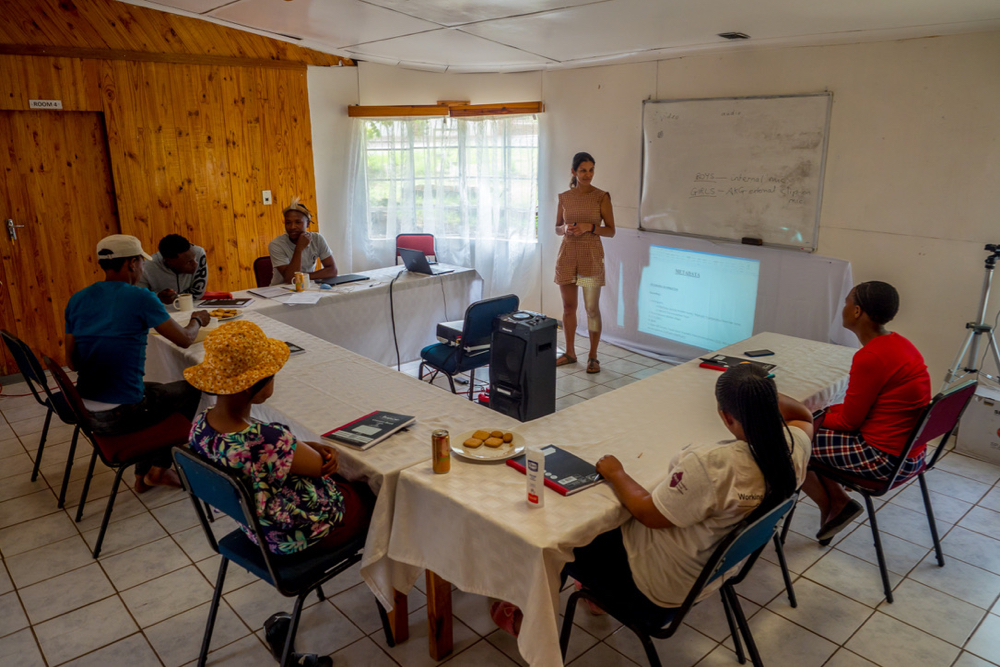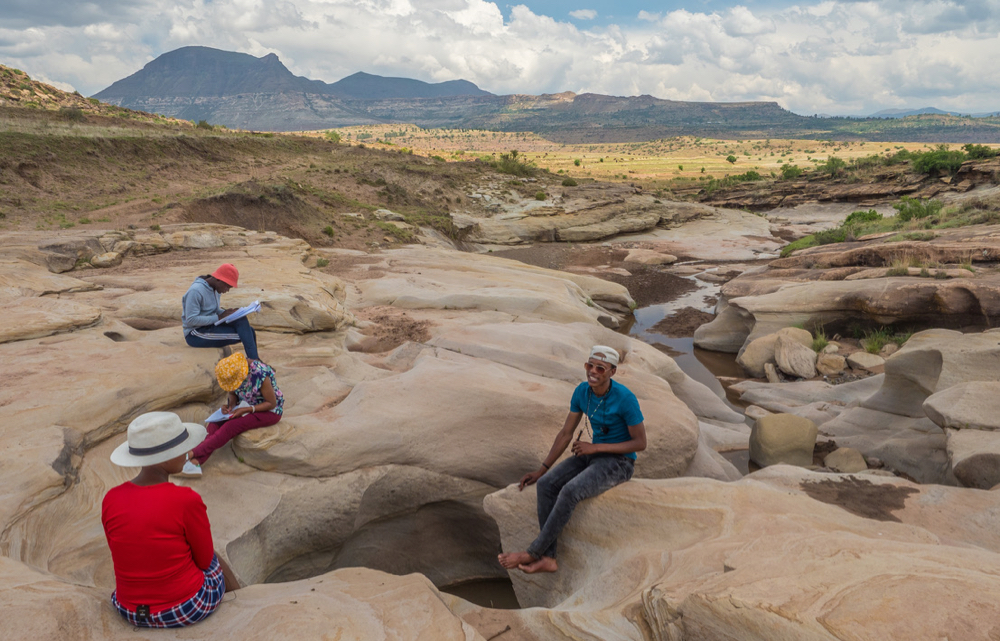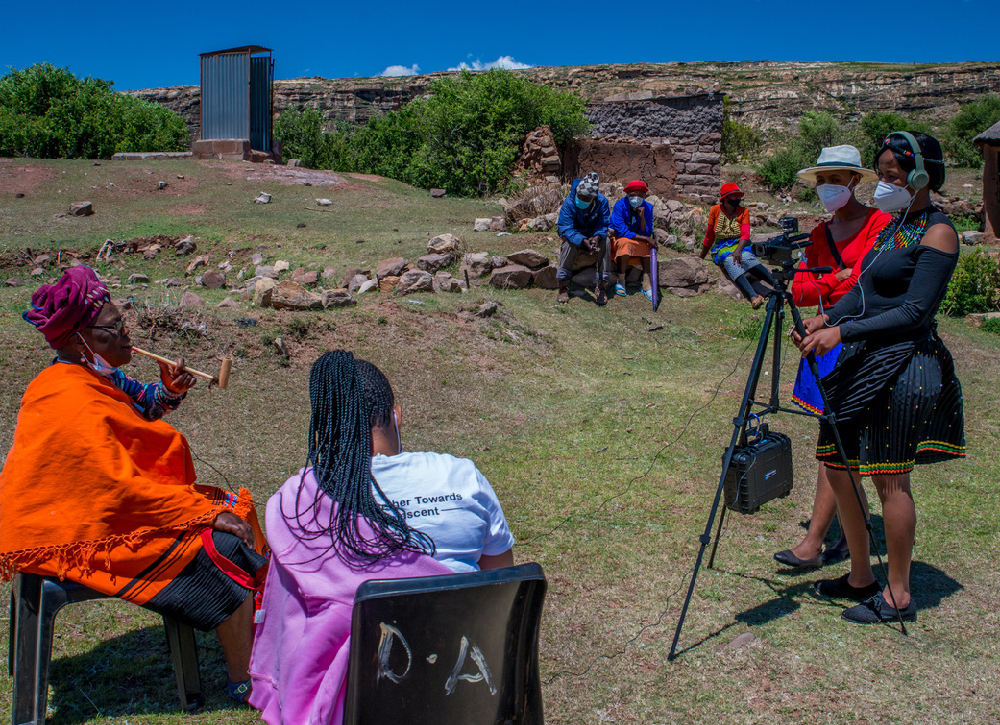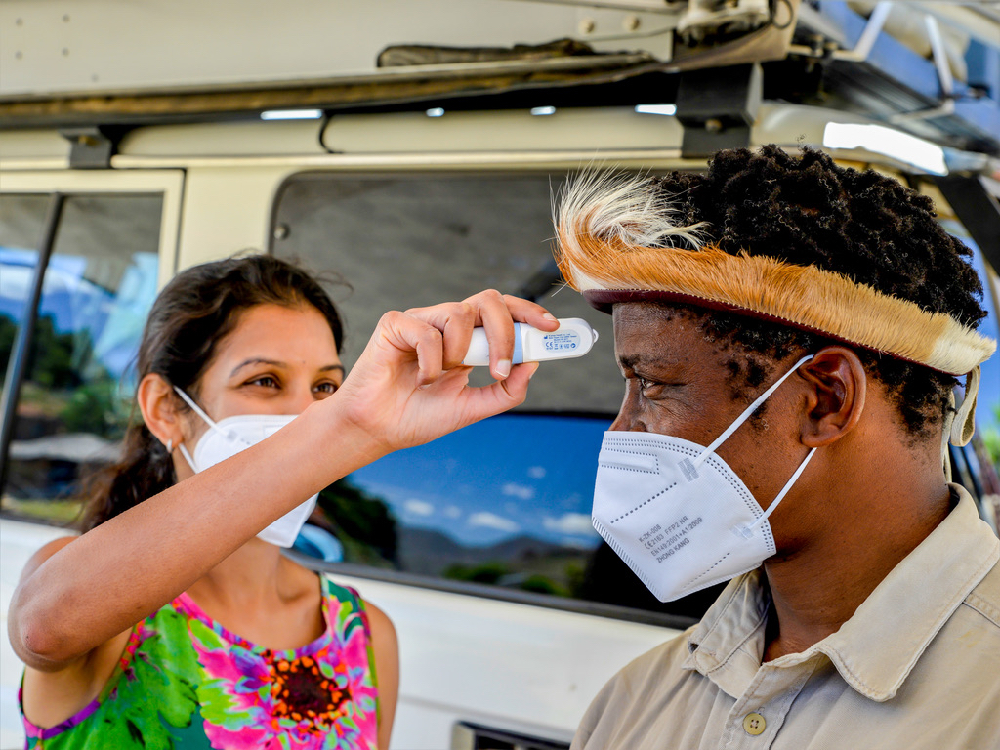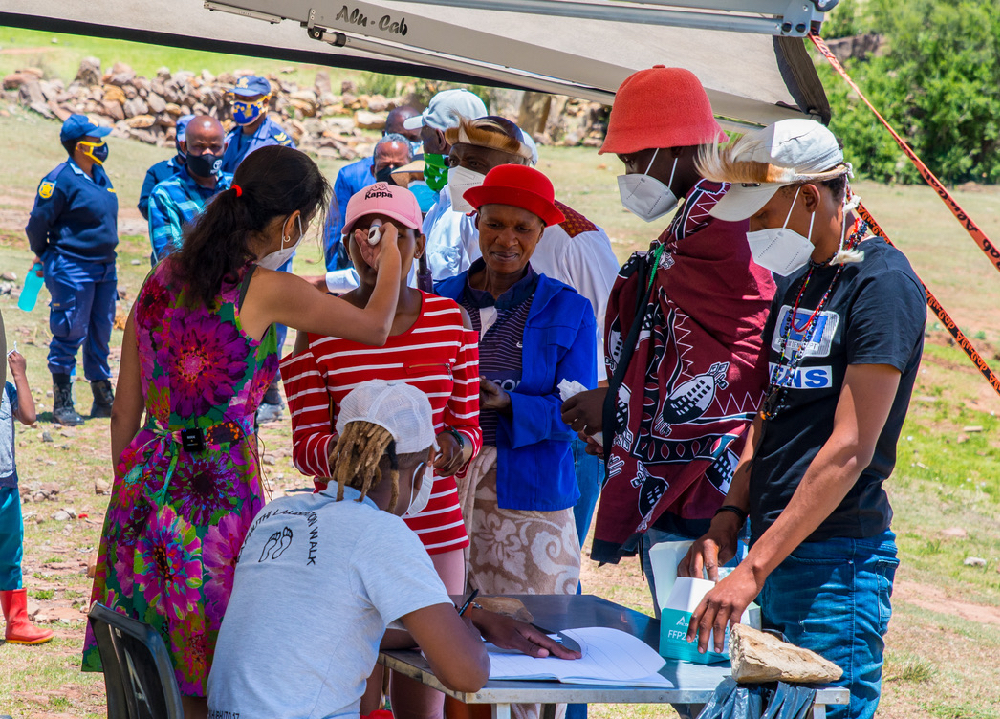SiPhuthi is spoken by a few thousand ebaPhuthi, most of whom reside in southern Lesotho. Intergenerational language transmission – in which children acquire siPhuthi from their parents and grandparents – is confined to two remote river valleys, Daliwe and Sinxondo. Even in these two valleys, when ebaPhuthi marry Basotho or amaXhosa, siPhuthi is often no longer used in the home environment. In these mixed marriages, children grow up speaking Sesotho or isiXhosa as their main languages.
For over a decade, we have been pursuing our passion and have been working as a team in supporting marginalised communities in documenting and revitalising their threatened languages. Since 2016, we closely collaborate with ebaPhuthi in Lesotho and South Africa. Over the last six years, we have been recording siPhuthi narratives, conversations, interviews, folktales, oral histories and poems for present and future generations. We also support the production of materials in siPhuthi, such as COVID health awareness posters. Together with siPhuthi speakers, we are producing a quadrilingual siPhuthi-Sesotho-isiXhosa-English dictionary, which we hope will serve as a basis for the development of learning and teaching materials for siPhuthi.
We regularly facilitate language documentation workshops for community members, since we strongly believe that the speakers should have agency to decide on how and by whom their languages are being documented. From 17th to 22ndNovember 2021, we trained six young ebaPhuthi from Daliwe and Sinxondo in language documentation methods and techniques. These young fluent siPhuthi speakers might well be considered key guardians of their threatened language and culture. This workshop took place in a Corona-safe environment at the Bethel Business and Community Development Centre (BBCDC), a vocational training centre in one of the most marginalised parts of Lesotho.
Centre: Farming is one of the tracks offered to students at the BBCDC
Right: The six workshop participants and Sheena Shah on a recording excursion
During the workshop, the participants had the opportunity to familiarise themselves not only with recording techniques, but also with ethical practices in language documentation, metadata creation, archiving standards, etc. They applied their skills by recording the most important annual event in the Phuthi calendar, which is the commemoration of the death of their king Murena Moorosi. Among the ebaPhuthi this event is known as Sikhubhuto sa Murena Moorosi.
Centre: Participants record each other outdoors
Right: Recording an interview with a siPhuthi speaker from South Africa at the Murena Moorosi commemoration event
The Covid-19 pandemic not only made it difficult to travel but also posed challenges for our language work. Since the workshop took place during the pandemic, we made sure to follow the precautions recommended at the local, national and international level. We were PCR-tested before entering Lesotho and all participants were tested using rapid lateral flow tests at the beginning of the workshop. Daily temperature measurements were taken and documented, and social distancing was practised. Most hands-on activities were conducted outside. At all times, everyone wore FFP2 masks, as stipulated by the Government of Lesotho. At the public gathering of the commemoration day, the workshop team volunteered to enforce Covid regulations by checking the body temperature of all attendees, by handing out FFP2 masks and by providing hand sanitizer wipes and liquid.
Right: The workshop team assists in implementing Corona measures at the annual Murena Moorosi commemoration event
For early 2022, a follow-up workshop is planned at which the participants will be taught more advanced techniques in order to enhance their recording skills and to prepare them to carry out their language documentation activities with minimal support and guidance from us. In the meantime, we continue to support these community members remotely.
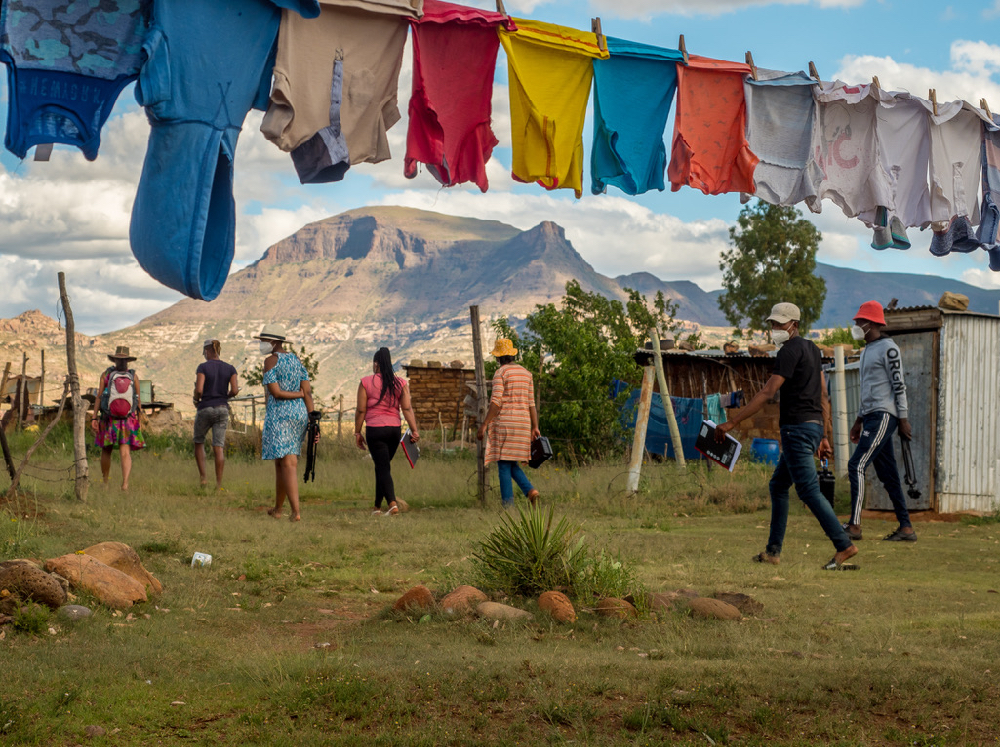
We are grateful to the Endangered Languages Documentation Programme (ELDP), the Alexander von Humboldt Foundation (AvH) and the South African Centre for Digital Language Resources (SADiLaR) for funding our research on siPhuthi.
Left: The workshop team returning from a recording session



